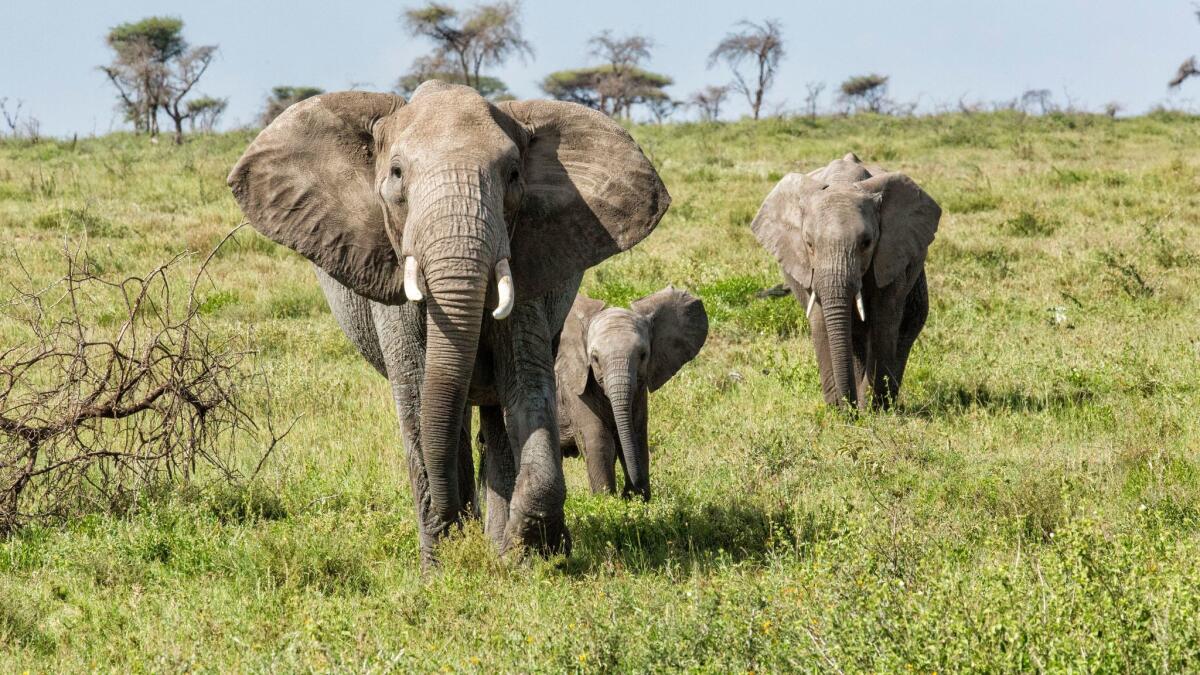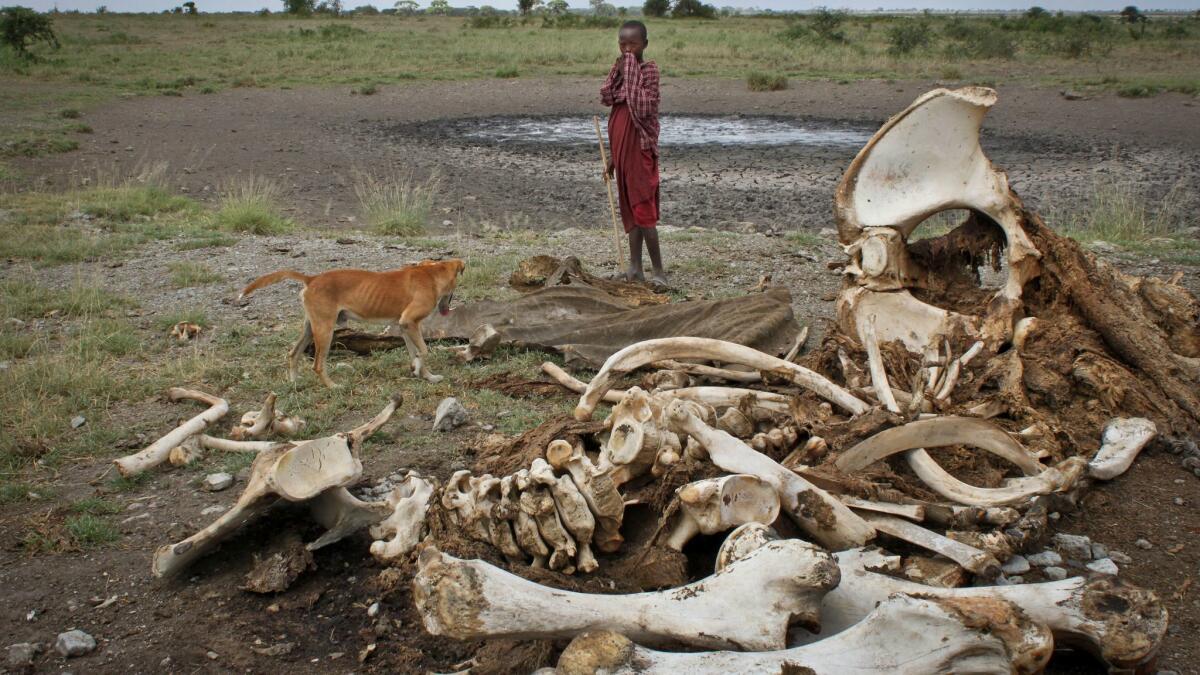The murder of a beloved anti-poaching crusader steels the resolve of fellow conservationists
Wayne Lotter, a prominent elephant conservationist murdered this week in Tanzania, for years had faced death threats related to his anti-poaching work, according to friends and colleagues.
The 51-year-old South African was shot dead Wednesday in the East African nation’s port city of Dar es Salaam.
The wildlife organization he helped found, PAMS Foundation, said on its Facebook page that Tanzanian law enforcement had launched an investigation into the killing, which many in the conservationist community believe was an assassination.
“It’s the most likely [motive] but we’ll wait to see what the police come out with,” said Sean Willmore, president of the International Ranger Federation, of which Lotter was once vice president. “Those who are close to the game probably think there’s a strong correlation that it was due to his anti-poaching efforts.”
“Everyone is angry, we’re sad, we’re in mourning, but at the same time there’s a steely determination for everyone to ensure that not only does PAMS work and Wayne’s legacy survive, but it’s doubled,” he said.
Tanzanian police could not be reached for comment, and PAMS did not immediately respond to a request for more information.
The Guardian newspaper reported Thursday that Lotter was being driven from the airport to his hotel when another vehicle stopped his taxi. Two men, one with a gun, opened his car door and shot him, the newspaper reported. In an article on Friday, the publication reported that Tanzanian police believe the wildlife activist may have been tracked by his killer.
Over the past 10 years, more than 1,000 park rangers have been killed worldwide, 80% of them by commercial poachers and armed militia groups, according to data from the International Ranger Federation.
Nonrangers and environmental activists have also been killed for their anti-poaching activities, Willmore said.
Since launching PAMS in 2009, Lotter had become a target of poachers.
“Wayne was very cognizant of threats that were coming his way,” Willmore said. “Literally, he would have threats all the time on his life. So he didn’t do [his work] blindly. He did this knowing the threats were there, but such was his passion for conservation. There’s only two alternatives — do the work or give up. And there’s no way Wayne Lotter was going to give up.”

On its Facebook page, PAMS posted a tribute to Lotter, praising him for devoting his life to Africa’s wildlife, “from working as a ranger in his native South Africa as a young man to leading the charge against poaching in Tanzania.”
“Wayne cared deeply about the people and animals that populate this world,” the statement said. “[He] believed communities were the best protectors of the continent’s animals. Through his work with PAMS he helped train thousands of village game scouts in every corner of the country.”
Lotter is also credited with developing an “intelligence-based approach” to anti-poaching. The strategy, which largely focuses on using informants and surveillance techniques to combat repeat offenders, has helped reduce rampant poaching in Tanzania, according to PAMS.
In a Facebook post, the Elephant Crisis Fund, a joint initiative of Save the Elephants and the Wildlife Conservation Network, said that with the help of PAMS, Tanzania’s National and Transnational Serious Crime Investigations Unit had arrested 1,398 poachers and ivory traffickers in recent years, 78% of whom were convicted.
“This has been the first significant win against a wave of poaching that slashed Tanzania’s elephant population by 60% between 2007 and 2016,” the organization said.
In the mid-1970s, according to the World Wildlife Fund, nearly 110,000 elephants roamed the savannas, wetlands, and forests of Selous Game Reserve, Tanzania’s oldest and largest protected area and a World Heritage Site. In June last year, the organization reported that rampant ivory poaching had slashed the animals’ number to 15,000.

“Wayne’s death will be a major setback in fighting against poaching in Tanzania,” Amani Ngusaru, Tanzania country director for the World Wildlife Fund said in a statement.
News of Lotter’s death saturated social media with tributes from the international conservation community.
Actor Leonardo DiCaprio, who in 1998 established a foundation with the stated mission of protecting the world’s last wild places, tweeted: “We lost a true conservation hero who fought so hard to protect Africa’s elephants.”
Primatologist Jane Goodall called Lotter “a hero of mine, a hero to many,” in an obituary posted on PAMS website.
“His courage in the face of stiff opposition and personal threats, and his determination to keep on fighting, has inspired many, and encouraged them also to keep fighting for wildlife,” Goodall wrote. “If this cowardly shooting was an attempt to bring the work of the PAMS Foundation to an end it will fail. Those who have been inspired by Wayne will fight on.”
Lotter is survived by his wife, Inge, daughters Cara Jayne and Tamsin, and parents, Vera and Charles Lotter.
For more on global development news, see our Global Development Watch page, and follow me @AMSimmons1 on Twitter
ALSO
The neat-as-a-pin African country where people are executed for petty theft
How a London PR firm was forced to apologize for sowing racial division in South Africa
Horrifying images on social media fuel tension after Kenya’s disputed election, but not all are real
More to Read
Sign up for Essential California
The most important California stories and recommendations in your inbox every morning.
You may occasionally receive promotional content from the Los Angeles Times.










